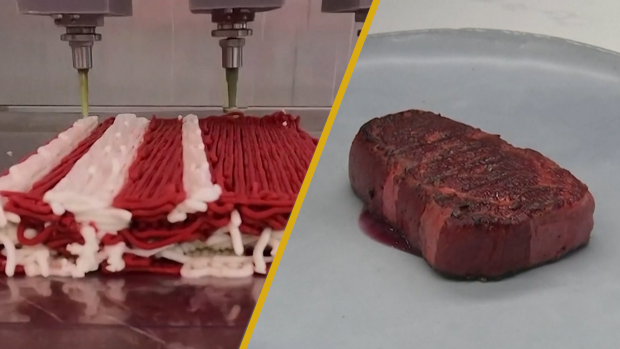
Breaking News
 Israeli Prime Minister, Netanyahu will meet with Trump on Wednesday and deliver instructions...
Israeli Prime Minister, Netanyahu will meet with Trump on Wednesday and deliver instructions...
 Elon Musk Offers To Cover Legal Bills Of Epstein Survivors Who Identify New Names
Elon Musk Offers To Cover Legal Bills Of Epstein Survivors Who Identify New Names
 Red Alert Emergency Broadcast! Tune In NOW As Alex Jones Analyzes The Insane Revelations...
Red Alert Emergency Broadcast! Tune In NOW As Alex Jones Analyzes The Insane Revelations...
 330 gallons of sulphuric acid was purchased for Epstein Island on the day the FBI opened...
330 gallons of sulphuric acid was purchased for Epstein Island on the day the FBI opened...
Top Tech News
 Drone-launching underwater drone hitches a ride on ship and sub hulls
Drone-launching underwater drone hitches a ride on ship and sub hulls
 Humanoid Robots Get "Brains" As Dual-Use Fears Mount
Humanoid Robots Get "Brains" As Dual-Use Fears Mount
 SpaceX Authorized to Increase High Speed Internet Download Speeds 5X Through 2026
SpaceX Authorized to Increase High Speed Internet Download Speeds 5X Through 2026
 Space AI is the Key to the Technological Singularity
Space AI is the Key to the Technological Singularity
 Velocitor X-1 eVTOL could be beating the traffic in just a year
Velocitor X-1 eVTOL could be beating the traffic in just a year
 Starlink smasher? China claims world's best high-powered microwave weapon
Starlink smasher? China claims world's best high-powered microwave weapon
 Wood scraps turn 'useless' desert sand into concrete
Wood scraps turn 'useless' desert sand into concrete
 Let's Do a Detailed Review of Zorin -- Is This Good for Ex-Windows Users?
Let's Do a Detailed Review of Zorin -- Is This Good for Ex-Windows Users?
 The World's First Sodium-Ion Battery EV Is A Winter Range Monster
The World's First Sodium-Ion Battery EV Is A Winter Range Monster
 China's CATL 5C Battery Breakthrough will Make Most Combustion Engine Vehicles OBSOLETE
China's CATL 5C Battery Breakthrough will Make Most Combustion Engine Vehicles OBSOLETE
World's largest lab-grown steak unveiled by Israeli firm

The largest lab-grown steak yet produced has been unveiled by the Israeli company MeaTech 3D, weighing in at nearly 4oz (110 grams).
The steak is composed of real muscle and fat cells, derived from tissue samples taken from a cow. Living bovine stem cells were incorporated into "bio-inks" that were then placed in the company's 3D printer to produce the steak. It was then matured in an incubator, in which the stem cells differentiated into fat and muscle cells.
Companies across the world are racing to produce cell-cultured meat, arguing that creating meat without raising and slaughtering livestock is better for the environment, animal welfare and potentially health.
Sharon Fima, CEO at MeaTech, said: "The breakthrough is the culmination of over one year's efforts in our cellular biology and high-throughput tissue-engineering processes, as well as our precision bioprinting technology. We believe we have placed ourselves at the forefront of the race to develop high-end, cell-based meat products." Cell lines for pork and chicken are also being developed, he said.
The company said it aimed to produce cultured meat at the same cost as conventional meat. But the steaks will not appear on diners' plates soon. The company's first venture into the market will be to sell the cultured fat as an ingredient for other products, with a pilot plant planned for 2022.
"The MeaTech announcement marks an exciting step forward in terms of the complexity and sheer size of a cultivated steak," said Seren Kell at the Good Food Institute (GFI) Europe. "3D printing enables companies to create more sophisticated 'whole cut' products which can authentically recreate the taste, texture and mouthfeel of conventional meat."



